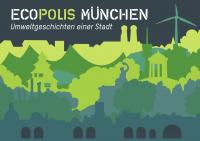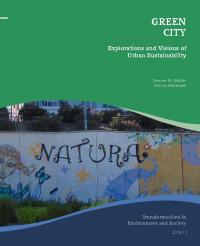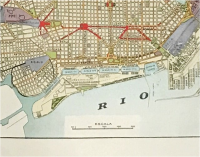Show search results for
Who Are Green Cities Actually For?
May Tan-Mullins looks at the decision-making processes involved in developing the Sino-Singaporean Tianjin Eco-city in China.
The Limits of Techno-management in Transitioning to Green Cities
Nir Barak explores the limits of techno-managerial approaches towards creating greener cities.
Green City Promises and "Just Sustainabilities"
Vanesa Castán Broto critiques sustainable development agendas that approach green cities as merely engines of economic growth.
Feathering the Multispecies Nest: Green Cities, Convivial Spaces
Rigby reimagines green cities from an interdisciplinary environmental humanities perspective to see how they can also be sites of more-than-human prosperity.
Green Visions: A Dialogue
Dorothee Brantz and Avi Sharma discuss the history of green urban visions, looking at historical precedents of the modern green city.
"The Challenge of Sustainable Planning for US Metropolitan Areas"
Charles Hoch, Professor Emeritus of urban planning and policy at the University of Illinois, talks about the challenges of regional planning in the United States. As opposed to Europe where spatial planning prevails, the notion of urban planning is more dominant here, and Hoch uses the Chicago region as a case study.
"Urban Transformation: Spaces in the Sky"
Belinda Yuen, a town planner and expert in mass housing, presents an account of Singapore’s public housing, the evolution of concepts and strategies for high-rise urban planning, and the diverse common spaces that have been designed for a higher quality of life.
"Recentralising Political Power Through Decentralised Environmental Governance: A Case from Mexico's Early REDD+ Program"
Beth A. Bee studies the implementation of decentralized forms of environmental governance in Jalisco, Mexico, and the political and economic forces resulting in the marginalization of the municipalities affected by this project.
Memory and the Origins of the Reserva Ecológica Costanera Sur in Buenos Aires
A constructed park’s history clashes with how citizens see and use that space.






